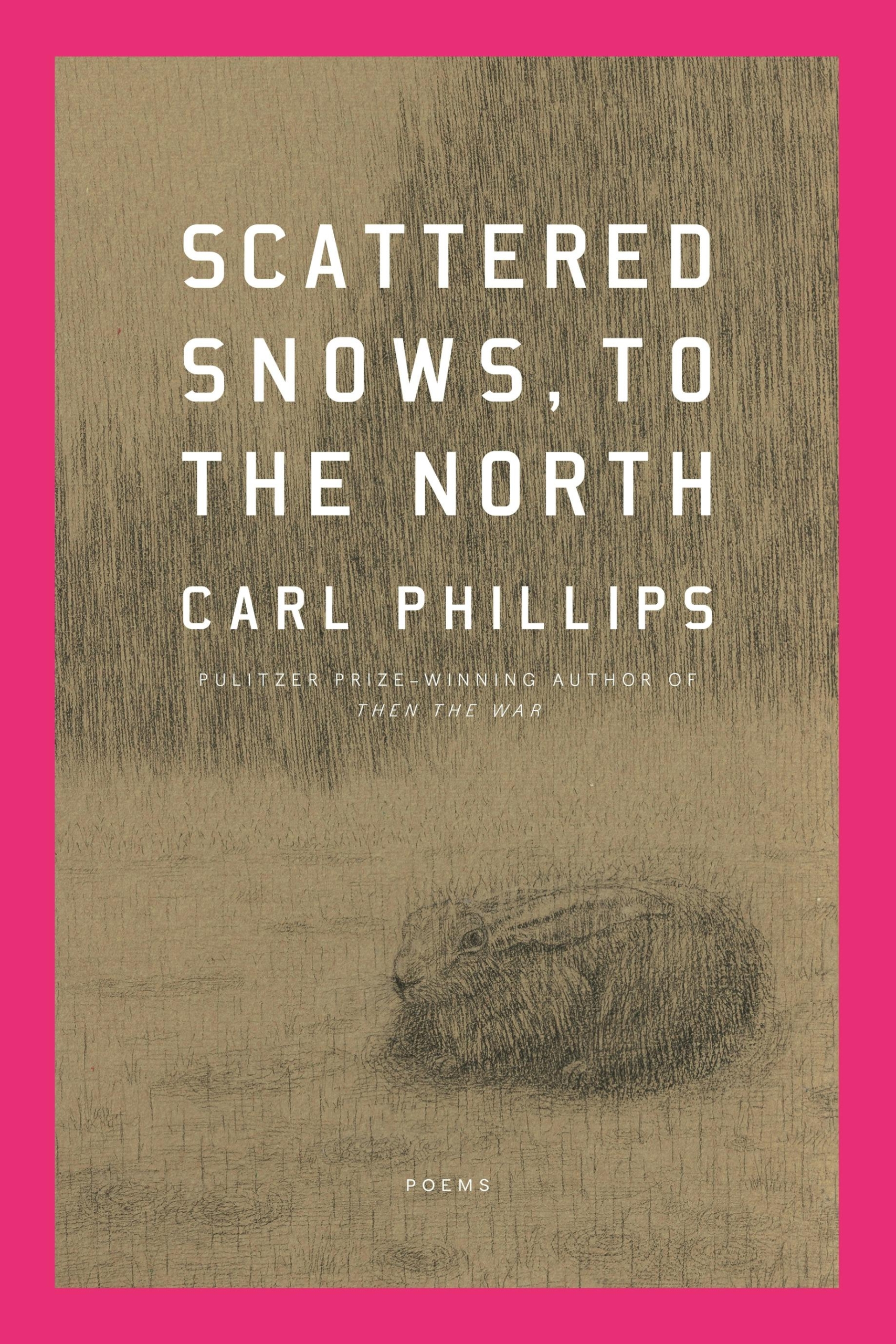
Carl Phillips | Scattered Snows, To The North | Carcanet: £11.99
Reviewed by Ian Pople
Relatively hot on the heels of Carl Phillips’ Pulitzer Prize-winning volume, And Then the War, comes his new volume, Scattered Snows, To The North. Phillips’ new collection has just been shortlisted for the T.S. Eliot prize in the UK. The volume’s blurb suggests that it’s a volume of poetry about ‘distortion and revelation, about knowing and the unreliability of a knowing that’s based on human memory.’ In addition, the T.S. Eliot prize shortlist suggests that the volume’s exploration of the ‘unknowing of knowing’ adds a strong elegiac note to his poetry.
It is true that the first two poems of the collection do look towards autumn and offer a meditation on loss and grief. The first of these poems, ‘Regime’, ends with the lines, ‘It’s hard / to believe in them, / the beautiful colors // of extinction: but / these are the colors.’ Whereas, the next poem, ‘Before All of This,’ begins with ‘And as usual, early summer seems already to hold, inside it, / the split fruit of late fall, those afternoons whose / diminished music we’ll soon enough / lie down in’. Both the end line of ‘Regime’ and the opening line ‘Before All of This’, are typical of Phillips’ style. The deferred centre to the sentence, ‘the beautiful colors of extinction,’ or ‘the split fruit of late fall’, and the way in which Phillips seems gently to explore these centres with pronouns that both anticipate and further defer, i.e., ‘them’ and ‘it’. This is emblematic of Phillips’ mediative style. This gentle, meditative tone is also reflected in his choice of adjectives, ‘beautiful,’ ‘split’, ‘late’, and ‘diminished,’ which possess their own sense of elegy. The construction of the opening two poems suggests not only a very particular and adept control of the cadences of the poem’s syntax but also a particular and adept control of the rhythm of ideas and images; a control, if you like, of the rhythm of thinking. A rhythm that is calm but never diffuse.
‘Before All of This’ ends with the lines:
The air stirs like history
Like the future
Like history
The spaced pauses are ambivalent, yet draw attention to the repetition of ‘like’: a developing, retrospective style. The repetition of ambivalent pauses creates a climax that washes back not only over the poem that has preceded it but also washes forward over the poems that follow it – denoted by the lack of a full stop after the final word.
Scattered Snows, To The North is a volume where Phillips, who has never been afraid to be declarative, pushes a kind of certainty to the fore. If ‘a kind of certainty’ seems like a contradiction in terms, it’s a tribute to Phillips’ skill and control that this is what came across to this reader. Perhaps this kind of certainty embodies the volume’s blurb’s declaration that Phillips’ poetry is interested in exploring ‘the unreliability of knowing’.
This ‘unreliability of knowing’ is a key motif in Scattered Snow, To The North. In Western Edge’, Phillips writes, ‘I need you / the way astonishment, / which is really just // the disruption of routine, / requires routine.’ Here, ‘astonishment’ acquires a particular kind of certainty, which is then undermined. Phillips’ declaration of astonishment as ‘really just the disruption of routine,’ becomes an uncertain declaration through the line’s repetition. For some readers, this might make the poem a little hermetic, even vatic. But often Phillips in his poetry rubs up against the circular in order, I would suggest, to set it apart, to examine, and even force the reader to examine their own certainties about the poetry. Philips’ development of the circular becomes its own kind of phenomenology.
Phillips has commented on his concern with the power dynamic held within relationships, particularly in the context of gay relationships. Scattered Snows, To The North once again returns to the power dynamics behind these relationships, but Phillips’ examination this time seems hesitant. Querulous syntax folds and unfolds in and beneath itself. This folding and unfolding leads Phillips to build long sentences full of hesitation. Here is an example from the title poem ‘Scattered Snows, to the North’: ‘But there were / people, of course, too, most of them / destined to be unremembered, / who filled in their drawn lives / anyway – because what else / is there? to where the edges / gave out.’ Phillips’ syntax is so full of hesitation that it is unsurprising that their ‘edges’ finally ‘gave out’.
Phillips’ Scattered Snows, To the North is a volume of poetry that explores perception as shifting and uncertain. This new volume of Phillips’ poetry contains some of his finest reporting of the natural world. But what – arguably – makes Phillips one of the finest poets writing today is his skilful exploration of the ‘unreliability of knowing’.
Reviewed by Ian Pople
